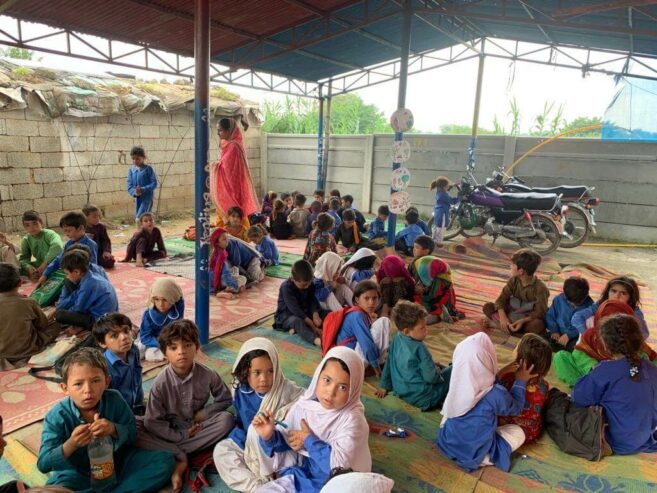
The Science Camp held at the PKSS schools of the JAQ Trust was a resounding success as it drew to a close on August 16, 2022. The brainchild of the brother-sister duo, Sadia Alima Qazi and Bilal Mustafa Qazi, the Science Camp gave the students of Pehli Kiran Schools practical exposure to science concepts by carrying out various experiments and activities. Sadia and Bilal are A’ Level students with a keen interest in STEM subjects (Science, Technology, Engineering, and Mathematics).

Students waiting expectantly for the Science Camp to begin at PK 4

Science Camp in Progress at PK 4

Students exuberant after a successful Science Camp at PK 5
Sadia and Bilal wanted to introduce science concepts in an innovative and exciting way to young students at the primary level and spark their interest in pursuing STEM subjects. Sadia found that girls are often hesitant to pursue science and she wanted to encourage them to consider science as a higher studies option. The goal was two-fold; to create an interest in students and also to motivate and mentor teachers to teach science in a hands-on practical way. Books and bags were to be put away and fun and exciting activities were designed to be enjoyable as well as educational.
PKSS schools under the auspices of the JAQ Educational Trust were a natural choice to conduct the science camp. The underprivileged children of marginalized communities who do not have access to public or private schools needed to enter the world of science in a way that would introduce them to exciting ideas and tactical experiences.
Weeks of research went into designing the activities and experiments. The idea was to design a program that could easily be replicated at the individual school level cost-effectively and efficiently. Sadia and Bilal researched and tried out 40 different experiments and activities before deciding on 5 modules for the science camp. Materials were curated from different places, and this also required research and costing to ensure that the activities remained within a manageable budget for the model to be replicated later. Some materials (e.g. the mirrored plastic sheets for the kaleidoscope) were sourced from places as far as Karachi, which was quite a feat in the rainy season. Designs for the standee identifying each station were also done by Sadia and Bilal.
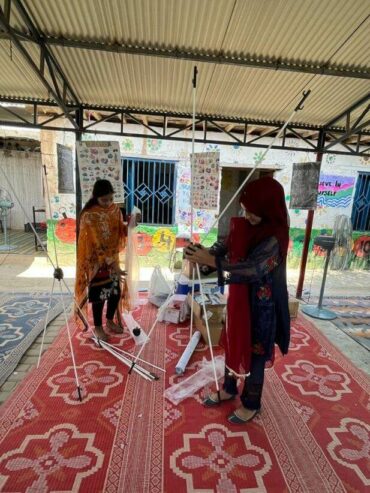
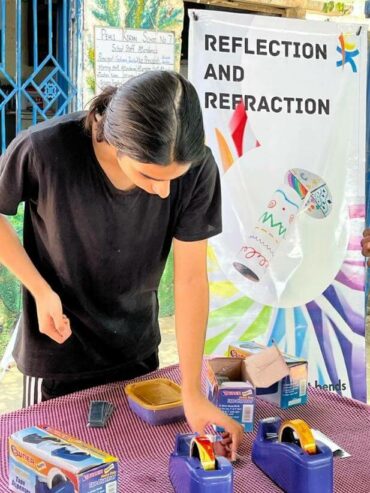

Volunteers setting up the standees and Bilal Qazi setting up the kaleidoscope table at PK 7

Setting up before the Science Camp at PK 2
The duration of the science camp was designed to be a maximum of 2 hours to retain the interest of the participants. 5 stations were designed and the activities on all 5 stations were to happen simultaneously. It was decided that students would be divided into groups and each group would visit the 5 stations in turn. This required that each station be manned by a tutor who would demonstrate and explain the activities. Further personnel was required to distribute the material to each group and guide them in conducting the experiments. Eleven volunteers from PKSS school staff were trained by Sadia and Bilal to conduct the experiments. Handouts were designed and printed to aid the trainers in understanding and demonstrating the concepts. These contained all the details of the materials used in the experiments and a detailed explanation of the topics.
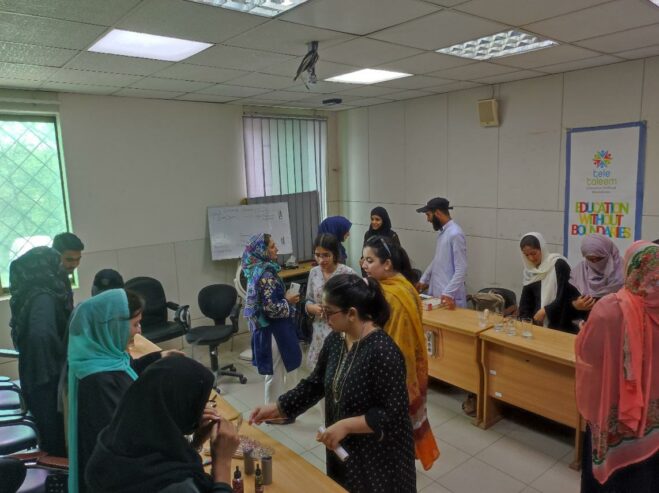
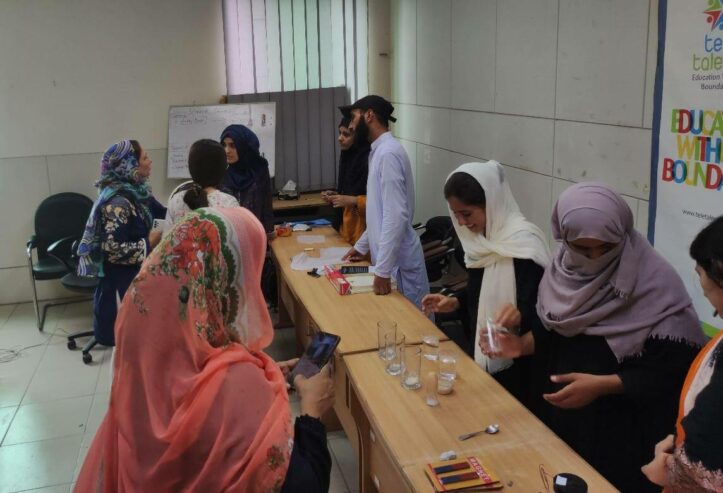
Volunteer Training in progress at Comcept Private Limited
Demonstration of refraction showing how light bends when it passes through water. Reflection was demonstrated by mirrors and the students constructed a kaleidoscope. The materials for the kaleidoscope included a special mirrored plastic sheet to be safely used by children instead of actual mirrors. Each student got to take the kaleidoscope home. This was by far the favorite activity of the students in the science camp. The glittering and colorful images created by the kaleidoscope created a lot of excitement and the children were thrilled to take the kaleidoscope home with them.
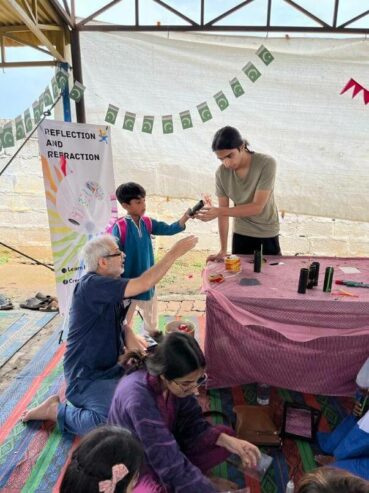
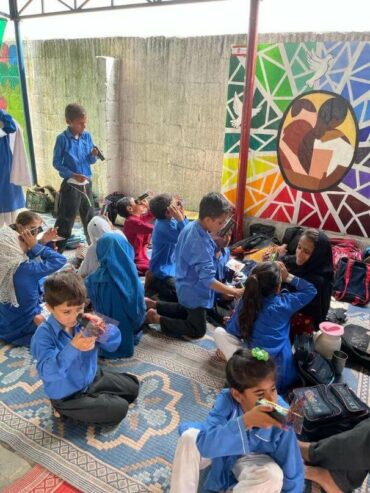
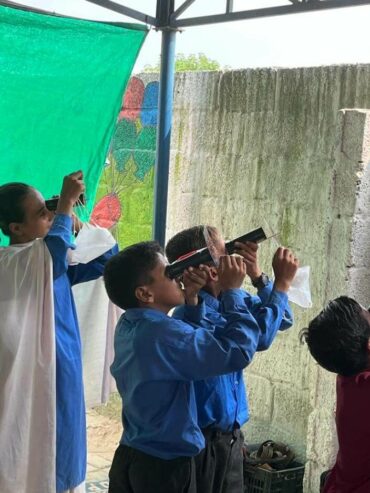
Students clamoring to test out their new kaleidoscopes
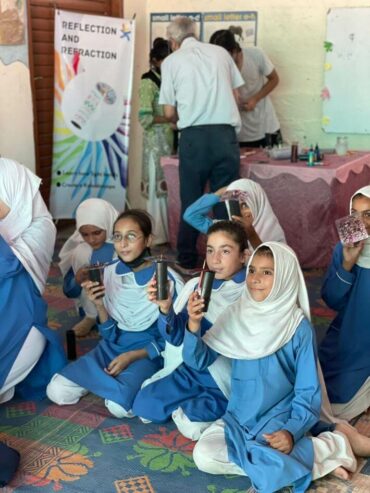
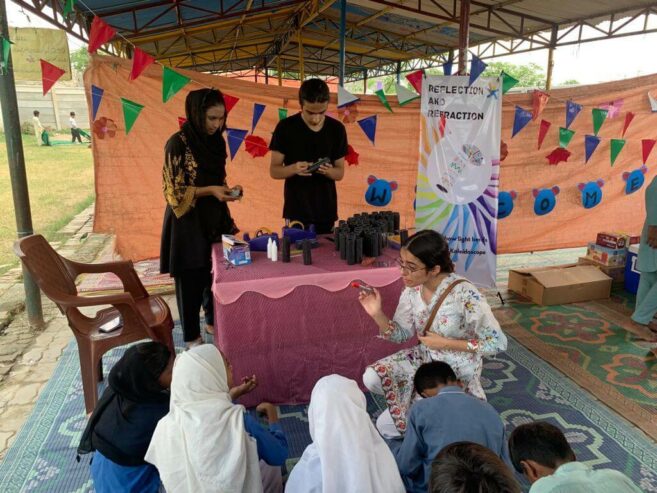
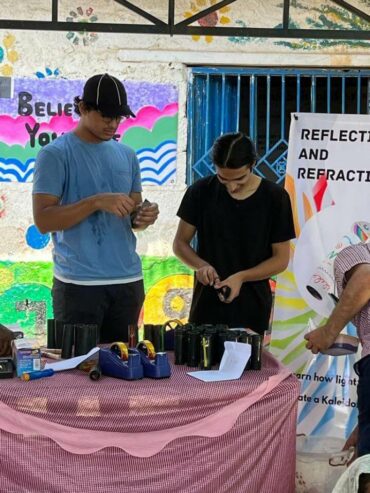

Bilal Qazi builds the kaleidoscopes as Sadia Qazi explains the concepts of reflection and refraction
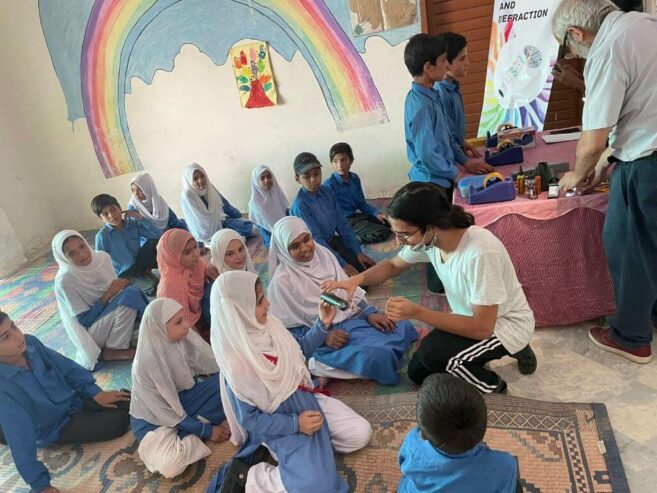
Introducing acids and bases by using easy-to-obtain materials like vinegar, lemon juice, and baking soda. Learned how pH indicators work by using red cabbage juice, which is a naturally occurring litmus test. Students would add different acids and bases to cabbage juice and then study how the color of the liquid changed based on pH level. The students enjoyed playing with the materials and marveled at how they could change the color of the cabbage juice by adding different ingredients. Each student was given the materials to conduct individual experiments.
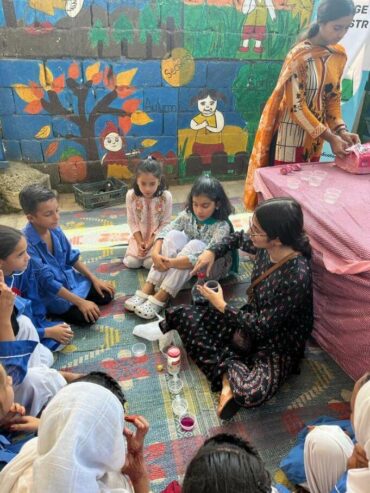
Sadia Qazi demonstrating Cabbage Chemistry to students at PK 7
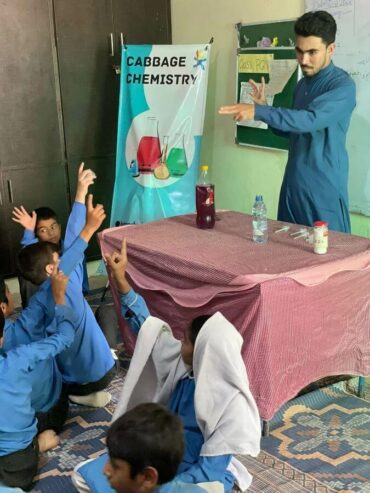
Volunteer and PKS alumnus Ajab Gull introduces concepts such as acids and alkalis to students
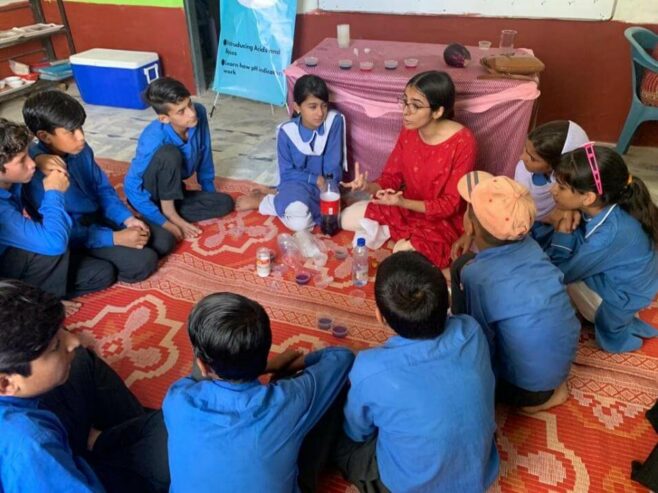
Sadia Qazi explains how a pH indicator works to students at PK9
Identifying soluble and insoluble materials by giving students easy to obtain materials like sugar, salt, plastic lego blocks, sand, and Styrofoam nodules. Water was provided as the solvent. The concepts and terms were taught by demonstration. The students were given the materials and stirrers to study the solubility of various materials. Discussion and participation by all students were encouraged.
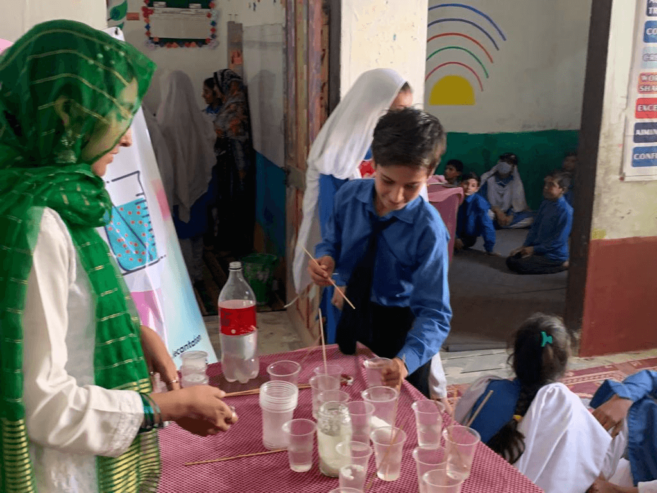
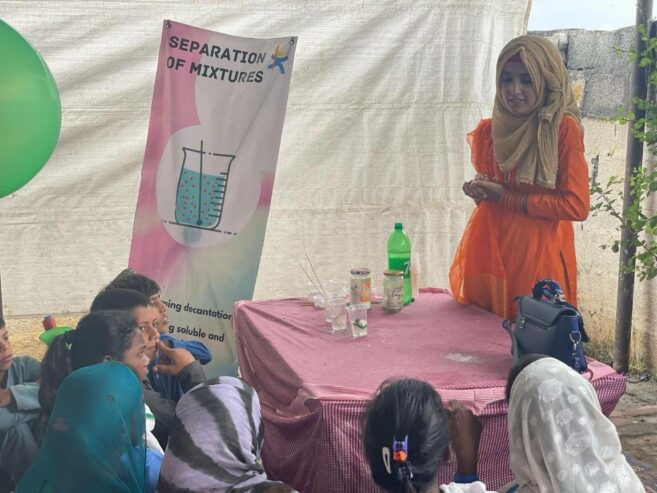
Students at PK 9 investigate soluble and insoluble materials with the help of PKS teacher and volunteer Areesha Naseem
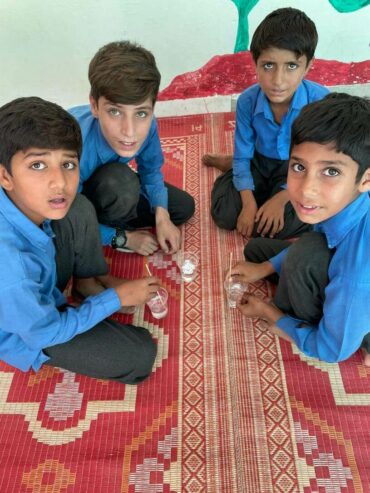
Students at PK 2 use Styrofoam balls to identify insoluble materials
Identifying magnetic and non-magnetic materials by giving students magnets and various materials like cloth, wooden pencils, plastic blocks, steel paper pins, and steel balls. The concepts of magnetism were taught and demonstrated and students had the hands-on experience of handling magnets and different materials.
Sound concepts were demonstrated by making string telephones using paper cups and strings. Students found this an interesting exercise as they enjoyed making and using the telephones.
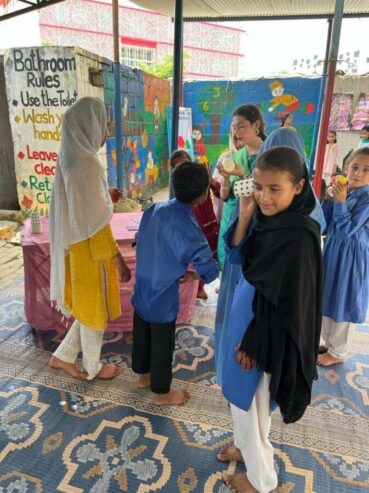

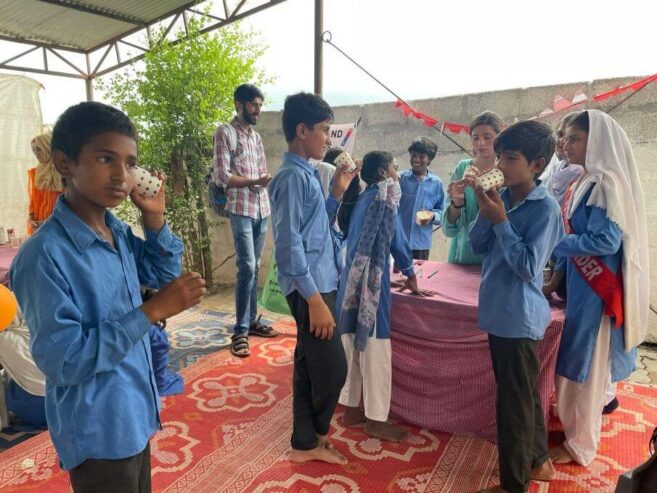
Students at PK 7 and PK 8 testing out telephones made out of paper cups and copper wires
The concept of friction was demonstrated by the famous ‘phone book friction’ experiment. Pages of two thick books were interlaced by the trainers and students were asked to pull them apart. It is almost impossible to separate the books and students were fascinated to learn that the force of friction is at work.
Friction, air resistance, and gravity were demonstrated by the building of a parachute using simple materials like strings, recycled plastic, sticky tape, and popsicle sticks. Students enjoyed making and launching the parachutes.
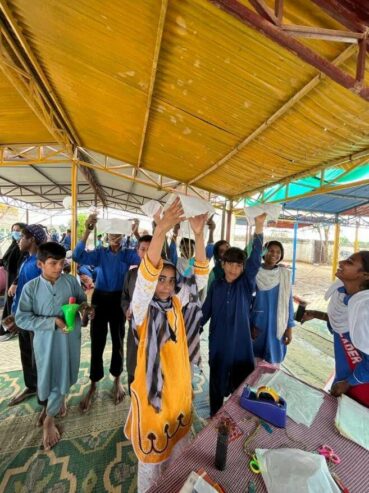
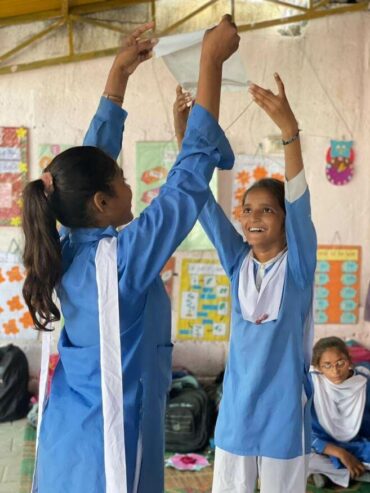
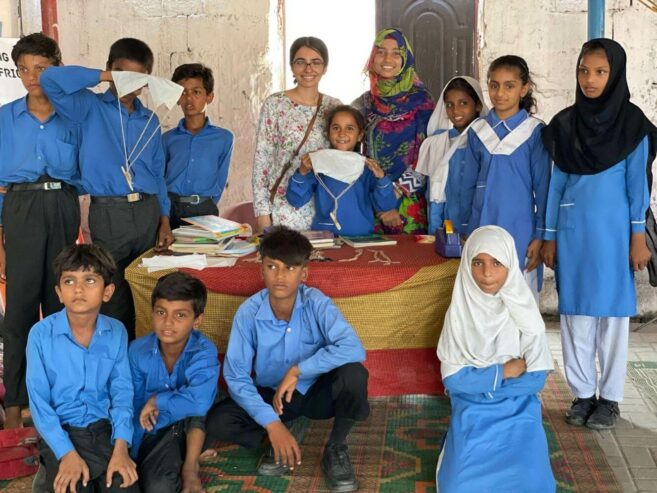
Students at PK 5 pose with the volunteers after learning about friction and air resistance
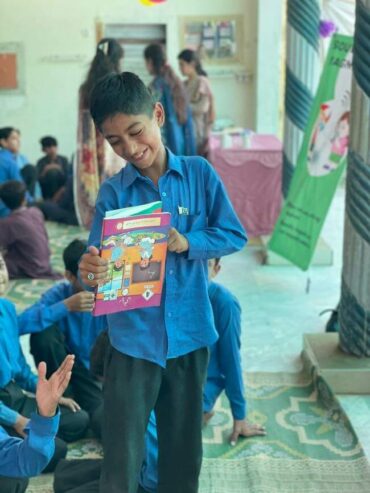
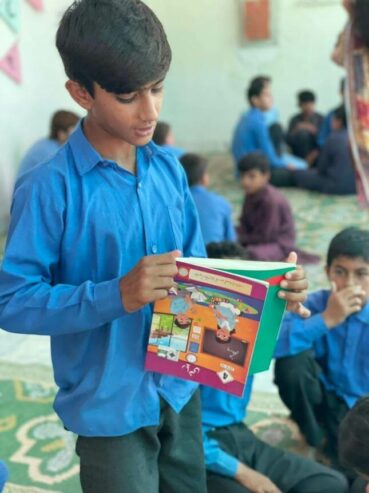
Ten camps were conducted in all ten PKSS schools. Students of grades 3, 4, and 5 were invited to attend. The school principals and teachers were also invited along with other admin members. All materials for the camp were managed by Sadia and Bilal. They had the support of many people behind the scenes who helped them curate materials and organize the infrastructure. Collapsible tables, standees, experiment materials, snacks, and cold drinks for the trainers; it was a long list of requirements. Once the first camp was conducted successfully, the subsequent ones went smoothly like clockwork.
The interest generated by the science camps was very encouraging. Students would file in with their bags and books at the start of the camp ready for a serious study session. To their surprise, they were told that all bags and books are to be put away and only fun activities were on the menu. The buzz of excitement would rise to a fever pitch as groups moved from station to station to observe and then conduct experiments. Friends compared notes asked questions and remained fascinated throughout the activities. Students clamored to try out each experiment and beaming smiles and enthusiastic faces abounded. After each camp, there was always the query – when will this happen again?
The trainers did a tremendous job of demonstrating and conducting the experiments at each station. They were enthusiastic and energetic and succeeded in sparking interest in the student groups. It was inspiring to see that some of them were alumni of PKSS schools who continue their long association with the JAQ Trust. The volunteers were given a token of appreciation by Sadia and Bilal at the end of the Science camp in recognition for their tireless efforts and cooperation.

Volunteers, teachers, and the entire team behind the PKS Science Camps pose for a group photo to mark the final day
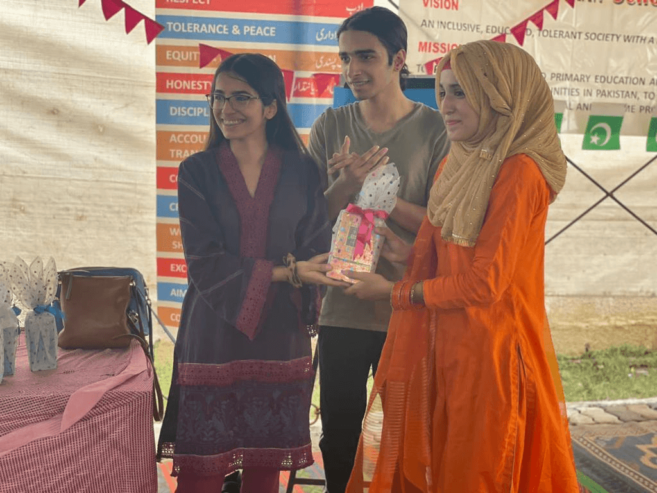
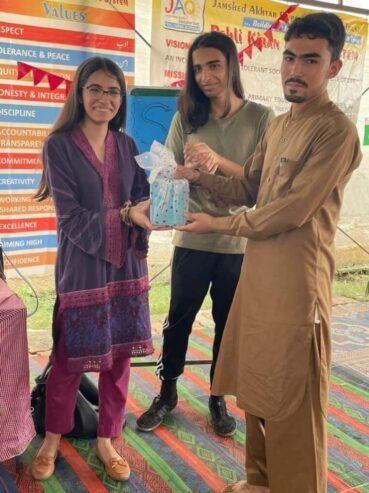
Sadia Qazi and Bilal Qazi present the volunteers with a token of appreciation for their hard work and dedication
The volunteers, in turn, hosted a lunch of delicious biryani for all the organizers in a befitting end to the successful conduct of the Science Camps. With the weather turning pleasant after a rainy spell, the picnic at PK-8 school was a special memory for everyone.
When asked what was the take-away from this experience, Sadia and Bilal said that they found the process of brainstorming and designing the science camp a lesson in hard work and planning. However, when the actual science camp was practically conducted, they found it inspiring and humbling. The spirit of learning, the desire to excel, and the enthusiasm of the volunteers and students were incredible despite the paucity of resources and the severity of the weather. The tremendous contribution of the JAQ Trust in bringing hope for a better tomorrow for these children living below the poverty line has inspired Sadia and Bilal to make community service an integral part of their lives.
Special appreciation is extended to Mohsin Alim Qazi and his office team, who facilitated the setting up of the Science Camps by contributing materials, financial assistance, and moral support for the project.
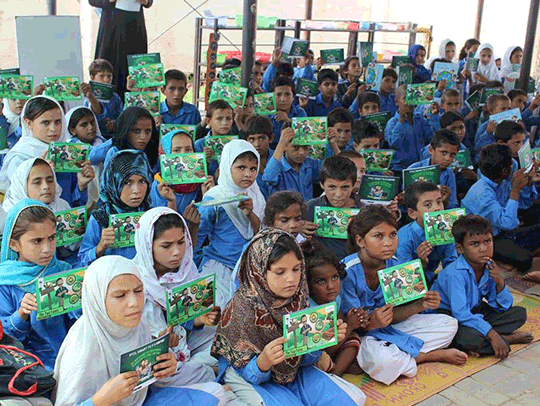
PTCL, in collaboration with WWF-Pakistan, conducted a Spellathon for 1,000 primary school students from…
Read More
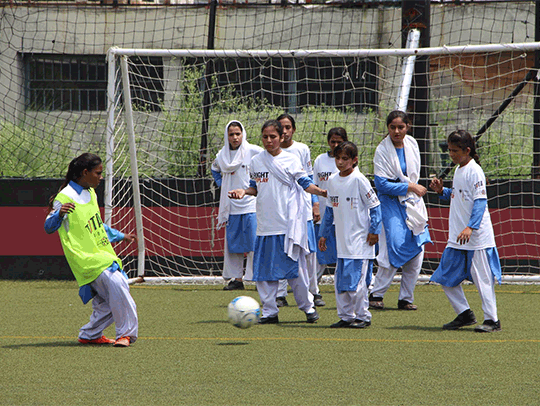
Pehli Kiran Schools focus on Sports to boost physical and mental energy in children….
Read More
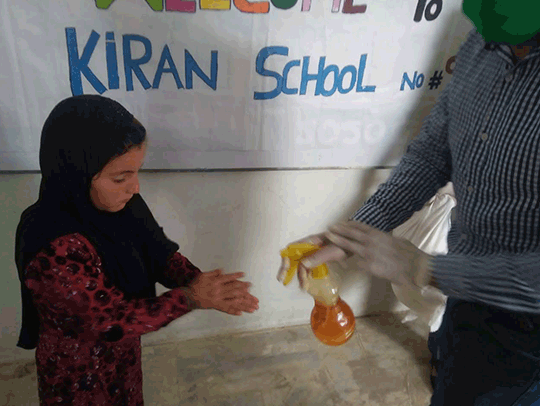
Amid the virus outbreak, PKS on-going hygienic awareness activities are assisting the communities living…
Read More
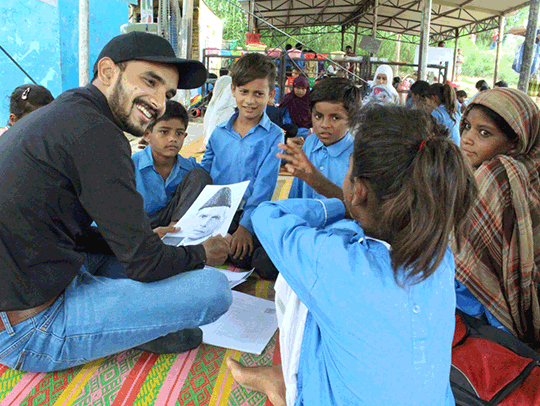
In Summer 2018, “Hansti Basti” or “Happy Hoods,” a program organized by Cities For…
Read More